Germany
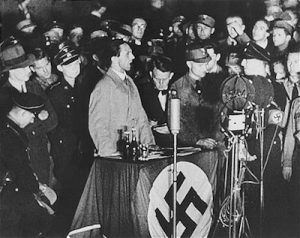 One of the best ways to form a dictatorship is to suppress knowledge. That’s one reason that propaganda is so important. When the people only hear what the government wants them to, they tend to become compliant…or at least that’s the theory. When Adolf Hitler was elected to office, he was the people’s choice, but they had no idea just how evil he was and how long they would be stuck with him. With the end of democracy, Germany became a one-party dictatorship. The Nazis began a massive propaganda campaign to win the loyalty and cooperation of Germans. The Nazi Propaganda Ministry, directed by Dr Joseph Goebbels, took control of all forms of communication in Germany…newspapers, magazines, books, public meetings, and rallies, art, music, movies, and radio. Viewpoints in any way threatening to Nazi beliefs or to the regime were censored or eliminated from all media. The German people were isolated from the outside world, and while they did not like it, the government became their only source of information.
One of the best ways to form a dictatorship is to suppress knowledge. That’s one reason that propaganda is so important. When the people only hear what the government wants them to, they tend to become compliant…or at least that’s the theory. When Adolf Hitler was elected to office, he was the people’s choice, but they had no idea just how evil he was and how long they would be stuck with him. With the end of democracy, Germany became a one-party dictatorship. The Nazis began a massive propaganda campaign to win the loyalty and cooperation of Germans. The Nazi Propaganda Ministry, directed by Dr Joseph Goebbels, took control of all forms of communication in Germany…newspapers, magazines, books, public meetings, and rallies, art, music, movies, and radio. Viewpoints in any way threatening to Nazi beliefs or to the regime were censored or eliminated from all media. The German people were isolated from the outside world, and while they did not like it, the government became their only source of information.
Germany was now led by a self-educated, high school drop-out named Adolf Hitler, who was by nature strongly anti-intellectual. For Hitler, the reawakening of the long-dormant Germanic spirit, with its racial and militaristic 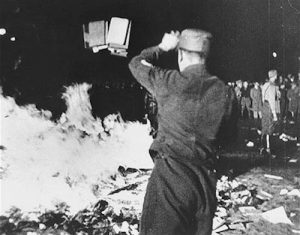 qualities, was far more important than any traditional notions of learning. Books and writings by such authors as Henri Barbusse, Franz Boas, John Dos Passos, Albert Einstein, Lion Feuchtwanger, Friedrich Förster, Sigmund Freud, John Galsworthy, André Gide, Ernst Glaeser, Maxim Gorki, Werner Hegemann, Ernest Hemingway, Erich Kästner, Helen Keller, Alfred Kerr, Jack London, Emil Ludwig, Heinrich Mann, Thomas Mann, Karl Marx, Hugo Preuss, Marcel Proust, Erich Maria Remarque, Walther Rathenau, Margaret Sanger, Arthur Schnitzler, Upton Sinclair, Kurt Tucholsky, Jakob Wassermann, H.G. Wells, Theodor Wolff, Emilé Zola, Arnold Zweig, and Stefan Zweig, were suddenly unGerman. Their books were pulled from libraries and schools. Then, on the night of May 10, 1933, an event unseen in Europe since the Middle Ages occurred as German students from universities once regarded as among the finest in the world, gathered in Berlin to burn books with unGerman ideas. It was the Nazi burning of knowledge. Students can be very impressionable, and easily lead, and these students played right into Hitler’s hand.
qualities, was far more important than any traditional notions of learning. Books and writings by such authors as Henri Barbusse, Franz Boas, John Dos Passos, Albert Einstein, Lion Feuchtwanger, Friedrich Förster, Sigmund Freud, John Galsworthy, André Gide, Ernst Glaeser, Maxim Gorki, Werner Hegemann, Ernest Hemingway, Erich Kästner, Helen Keller, Alfred Kerr, Jack London, Emil Ludwig, Heinrich Mann, Thomas Mann, Karl Marx, Hugo Preuss, Marcel Proust, Erich Maria Remarque, Walther Rathenau, Margaret Sanger, Arthur Schnitzler, Upton Sinclair, Kurt Tucholsky, Jakob Wassermann, H.G. Wells, Theodor Wolff, Emilé Zola, Arnold Zweig, and Stefan Zweig, were suddenly unGerman. Their books were pulled from libraries and schools. Then, on the night of May 10, 1933, an event unseen in Europe since the Middle Ages occurred as German students from universities once regarded as among the finest in the world, gathered in Berlin to burn books with unGerman ideas. It was the Nazi burning of knowledge. Students can be very impressionable, and easily lead, and these students played right into Hitler’s hand.
The youth-oriented Nazi movement had always attracted a sizable following among university students. Even back in the 1920s they thought Nazism was the wave of the future. They joined the National Socialist 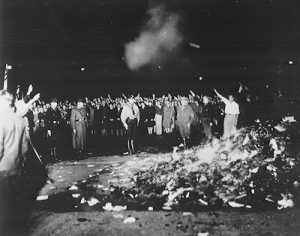 German Students’ League, put on swastika armbands and harassed anti-Nazi teachers. Many formerly reluctant professors were swept along by the outpouring of student enthusiasm that followed Hitler’s seizure of power. Most of the professors eagerly surrendered their intellectual honesty and took the required Nazi oath of allegiance. They also wanted to curry favor with Nazi Party officials in order to grab one of the academic vacancies resulting from the mass expulsion of Jewish professors and deans. The entire education system of a nation changed…almost overnight. As the German-Jewish poet, Heinrich Heine, had declared, a hundred years before the advent of Hitler, “Wherever books are burned, human beings are destined to be burned too.” And so it was in the end.
German Students’ League, put on swastika armbands and harassed anti-Nazi teachers. Many formerly reluctant professors were swept along by the outpouring of student enthusiasm that followed Hitler’s seizure of power. Most of the professors eagerly surrendered their intellectual honesty and took the required Nazi oath of allegiance. They also wanted to curry favor with Nazi Party officials in order to grab one of the academic vacancies resulting from the mass expulsion of Jewish professors and deans. The entire education system of a nation changed…almost overnight. As the German-Jewish poet, Heinrich Heine, had declared, a hundred years before the advent of Hitler, “Wherever books are burned, human beings are destined to be burned too.” And so it was in the end.
 Every war has one thing in common…there are two opposing sides. That can make for a volatile situation, even years after the war is over. Take our own Civil War. That war ended in 1865, but to this day, there are those who think we should tear down any and all memorials to the heroes of the South, which of course, lost the war. It’s a tough situation, but when you think about it, is a general from the South any less brave in battle. It is all a part of he fabric that forms our nation. They did not win the war, but as we have all told our children about sports, “It’s not whether you win or lose, but how you played the game.” Now, I know that war isn’t a game, although some have indicated that it is, nevertheless, most soldiers from the South fought as bravely and as honorably as those from the north. Everyone knows that the Confederate flag is not the flag of the United States, but it is a piece of it’s history, and history is history. It is not something we should be defacing, but rather honoring, because the fought the good fight.
Every war has one thing in common…there are two opposing sides. That can make for a volatile situation, even years after the war is over. Take our own Civil War. That war ended in 1865, but to this day, there are those who think we should tear down any and all memorials to the heroes of the South, which of course, lost the war. It’s a tough situation, but when you think about it, is a general from the South any less brave in battle. It is all a part of he fabric that forms our nation. They did not win the war, but as we have all told our children about sports, “It’s not whether you win or lose, but how you played the game.” Now, I know that war isn’t a game, although some have indicated that it is, nevertheless, most soldiers from the South fought as bravely and as honorably as those from the north. Everyone knows that the Confederate flag is not the flag of the United States, but it is a piece of it’s history, and history is history. It is not something we should be defacing, but rather honoring, because the fought the good fight.
President Regan felt the same way when he visited Germany on May 5, 1985. The Holocaust was a horrible 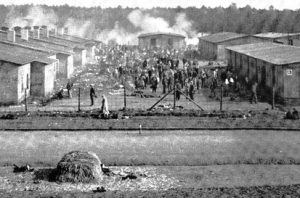 event, and not one that the majority of the German people agreed with, but they were in a difficult place too. They were following orders. Had they not done so, they would have been killed…here was no doubt. So, when Reagan went to Germany and to the cemeteries of the fallen German soldiers, should he have been disrespectful…of course not. He was a visitor in their country, and whether their politics was right or wrong, these were their fallen heroes. They were fathers, sons, brothers, uncles, grandfathers to someone in Germany, and they were loved. As Reagan said that day, “Here they lie. Never to hope. Never to pray. Never to love. Never to heal. Never to laugh. Never to cry.” Lives taken…too soon, by war, and that made them a nation’s heroes.
event, and not one that the majority of the German people agreed with, but they were in a difficult place too. They were following orders. Had they not done so, they would have been killed…here was no doubt. So, when Reagan went to Germany and to the cemeteries of the fallen German soldiers, should he have been disrespectful…of course not. He was a visitor in their country, and whether their politics was right or wrong, these were their fallen heroes. They were fathers, sons, brothers, uncles, grandfathers to someone in Germany, and they were loved. As Reagan said that day, “Here they lie. Never to hope. Never to pray. Never to love. Never to heal. Never to laugh. Never to cry.” Lives taken…too soon, by war, and that made them a nation’s heroes.
No two sides will ever agree, and emotions run high after a war, but sometimes people take things too far…retaliating for things they believe were wrong, years and even centuries after the events took place. The dead  are dead, and their memorials should be left alone, whether they are private, state, or national. To someone, somewhere, their efforts were heroic, and just because we have a different view of the things they stood for, does not give is the right to terrorize their graves and memorials. I suppose that many people would argue this point with me, and let it be known that I am not condoning the wrongs done by evil nations, I an simply saying that we should leave the memorials alone, because they do no harm. If people want to make a statement, they should teach their children right from wrong, so that they understand the difference between a cause, and a heroic soldier of that cause. One could arguably be condemned, while the other should not be.
are dead, and their memorials should be left alone, whether they are private, state, or national. To someone, somewhere, their efforts were heroic, and just because we have a different view of the things they stood for, does not give is the right to terrorize their graves and memorials. I suppose that many people would argue this point with me, and let it be known that I am not condoning the wrongs done by evil nations, I an simply saying that we should leave the memorials alone, because they do no harm. If people want to make a statement, they should teach their children right from wrong, so that they understand the difference between a cause, and a heroic soldier of that cause. One could arguably be condemned, while the other should not be.
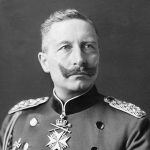 While Germany was willing to go to war, they had, nevertheless, a healthy fear of the United States. During World War I, Germany introduced unrestricted submarine warfare. It was early 1915, and Germany decided that the area around the British Isles was a war zone, and all merchant ships, including those from neutral countries, would be attacked by the German navy. That action set in motion a series of attacks on merchant ships, that finally led to the sinking of the British passenger ship, RMS Lusitania on May 7, 1915. It was at this point that President Woodrow Wilson decided that it was time to pressure the German government to curb their naval actions. Because the German government didn’t want to antagonize the United States, they agreed to put restrictions on the submarine policy going forward, which angered many of their naval leaders, including the naval commander in chief, Admiral Alfred von Tirpitz, who showed his frustration by resigning in March 1916.
While Germany was willing to go to war, they had, nevertheless, a healthy fear of the United States. During World War I, Germany introduced unrestricted submarine warfare. It was early 1915, and Germany decided that the area around the British Isles was a war zone, and all merchant ships, including those from neutral countries, would be attacked by the German navy. That action set in motion a series of attacks on merchant ships, that finally led to the sinking of the British passenger ship, RMS Lusitania on May 7, 1915. It was at this point that President Woodrow Wilson decided that it was time to pressure the German government to curb their naval actions. Because the German government didn’t want to antagonize the United States, they agreed to put restrictions on the submarine policy going forward, which angered many of their naval leaders, including the naval commander in chief, Admiral Alfred von Tirpitz, who showed his frustration by resigning in March 1916.
On March 24, 1916, soon after Tirpitz’s resignation, a German U-boat submarine attacked the French passenger steamer Sussex, in the English Channel, thinking it was a British ship equipped to lay explosive mines. It was apparently an honest mistake, and the ship did not sink. Still, 50 people were killed and many 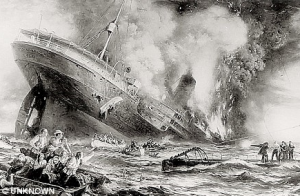 more injured, including several Americans. On April 19, in an address to the United States Congress, President Wilson took a firm stance, stating that unless the Imperial German Government agreed to immediately abandon its present methods of warfare against passenger and freight carrying vessels the United States would have no choice but to sever diplomatic relations with the Government of the German Empire altogether.
more injured, including several Americans. On April 19, in an address to the United States Congress, President Wilson took a firm stance, stating that unless the Imperial German Government agreed to immediately abandon its present methods of warfare against passenger and freight carrying vessels the United States would have no choice but to sever diplomatic relations with the Government of the German Empire altogether.
After Wilson’s speech, the US ambassador to Germany, James W. Gerard, spoke directly to Kaiser Wilhelm on May 1 at the German army headquarters at Charleville in eastern France. After Gerard protested the continued German submarine attacks on merchant ships, the Kaiser in turn denounced the American government’s compliance with the Allied naval blockade of Germany, in place since late 1914. Nevertheless, Germany could not risk American entry into the war against them, so when Gerard urged the Kaiser to provide assurances of a change in the submarine policy, the Kaiser agreed.
On May 6, the German government signed the so-called Sussex Pledge, promising to stop the indiscriminate sinking of non-military ships. According to the pledge, merchant ships would be searched, and sunk only if they 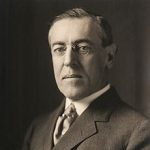 were found to be carrying contraband materials. Furthermore, no ship would be sunk before safe passage had been provided for the ship’s crew and its passengers. Gerard was skeptical of the intentions of the Germans, and wrote in a letter to the United States State Department that “German leaders, forced by public opinion, and by the von Tirpitz and Conservative parties would take up ruthless submarine warfare again, possibly in the autumn, but at any rate about February or March, 1917.” Gerard was right, and on February 1, 1917, Germany announced the resumption of unrestricted submarine warfare. Two days later, Wilson announced a break in diplomatic relations with the German government, and on April 6, 1917, the United States formally entered World War I on the side of the Allies.
were found to be carrying contraband materials. Furthermore, no ship would be sunk before safe passage had been provided for the ship’s crew and its passengers. Gerard was skeptical of the intentions of the Germans, and wrote in a letter to the United States State Department that “German leaders, forced by public opinion, and by the von Tirpitz and Conservative parties would take up ruthless submarine warfare again, possibly in the autumn, but at any rate about February or March, 1917.” Gerard was right, and on February 1, 1917, Germany announced the resumption of unrestricted submarine warfare. Two days later, Wilson announced a break in diplomatic relations with the German government, and on April 6, 1917, the United States formally entered World War I on the side of the Allies.
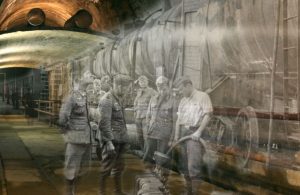
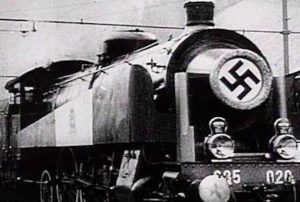 So much is still unknown about the things that Adolf Hitler did, including an apparent “Ghost Train” that was filled with gold and other treasures. According to legend, as the Soviet forces approached in the final days of World War II, an armored train left the city of Breslau (now Wroclaw, Poland) in April 1945 and headed west toward Waldenburg (now Walbrzych). Somewhere along the 40 mile trip, the train and its cargo of gold and other treasures…many of them stolen by the Nazis from Jewish families…vanished into the Owl Mountains, never to be seen again, except in local legend. Stories of the Nazi “Ghost Train” date back some 70 years, although historians haven’t been able to conclusively prove the train ever existed. During the war, Hitler ordered the creation of a network of underground tunnels in the Owl Mountains, which at the time were under German control, as part of a project known as “Riese,” meaning “Giant.” The original rumor of a Nazi train hidden in the mountains came from a Polish miner, who claimed that just after the war, German miners told him they had seen the train being pushed into one of the tunnels.
So much is still unknown about the things that Adolf Hitler did, including an apparent “Ghost Train” that was filled with gold and other treasures. According to legend, as the Soviet forces approached in the final days of World War II, an armored train left the city of Breslau (now Wroclaw, Poland) in April 1945 and headed west toward Waldenburg (now Walbrzych). Somewhere along the 40 mile trip, the train and its cargo of gold and other treasures…many of them stolen by the Nazis from Jewish families…vanished into the Owl Mountains, never to be seen again, except in local legend. Stories of the Nazi “Ghost Train” date back some 70 years, although historians haven’t been able to conclusively prove the train ever existed. During the war, Hitler ordered the creation of a network of underground tunnels in the Owl Mountains, which at the time were under German control, as part of a project known as “Riese,” meaning “Giant.” The original rumor of a Nazi train hidden in the mountains came from a Polish miner, who claimed that just after the war, German miners told him they had seen the train being pushed into one of the tunnels.
In 2015, two anonymous men contacted officials in Walbrzych, a district in southwestern Poland, claiming to know the train’s location and demanding 10 percent of the value of its contents in exchange for leading authorities there. According to Marika Tokarska, an official in the southwestern Polish district of Walbrzych, a law firm representing two men…a Pole and a German, who prefer to remain anonymous…sent her office two letters, offering a description of the train and its contents and claiming to know its location. The documents received from the law firm claim the train is some 490 feet long and loaded with guns, precious metals and other valuables, including up to 300 tons of gold. In exchange for revealing the train’s location, the men are demanding 10 percent of the value of its contents. Although there is much skepticism expressed by historians as to the validity of the men’s claims, authorities in Walbrzych say they will pay the reward if the information turns out to be legitimate. I guess I would too. The men are asking 10% of the total, which could be a huge amount, but not nearly as much as the remaining 90%, so paying them would make sense. As Tokarska told the Associated Press: “We believe that a train has been found. We are taking this information seriously.” Though the men’s knowledge of the train’s contents and their retaining of a lawyer lend legitimacy to their claims, there is still plenty room for skepticism: The first letter from the men’s law firm included several references to local topography suggesting the men might not be as familiar with the area as they claim, and previous searches for the train in recent years have yielded nothing.
Andreas Richter, a German, and Piotr Koper, a Pole, moved in with heavy equipment and dug deep at a site near rail tracks in Walbrzych, following comments by residents who said they had knowledge of the train’s 
 existence. Richter and Koper said that their own tests using earth-penetrating radar confirmed a train was at the site. Nevertheless, after an initial dig, the crew turned up no sign of the “Ghost Train.” Still, they have not given up just yet. There are plans in place to dig again in the very near future. The two men are determined to prove that they have found the real “Ghost Train,” and to claim the 10% share they were promised, it they find it.
existence. Richter and Koper said that their own tests using earth-penetrating radar confirmed a train was at the site. Nevertheless, after an initial dig, the crew turned up no sign of the “Ghost Train.” Still, they have not given up just yet. There are plans in place to dig again in the very near future. The two men are determined to prove that they have found the real “Ghost Train,” and to claim the 10% share they were promised, it they find it.
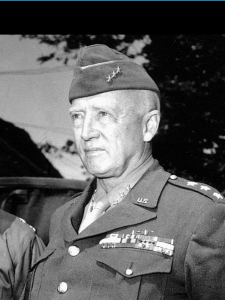 In many of the wars there have been in our world, one thing seems to be a constant…the atrocities against prisoners of war, and even the citizens of the evil nations we are fighting against. World War II probably saw some of the worst atrocities, during the Holocaust. It was during that time that prison camps like Auschwitz-Birkenau, Buchenwald, Chelmno, Dachau, and Terezin, just to name a few, were used either for the murder of Jews and anyone else Hitler felt was not of the standard of people he thought they should be, or the prisoners they held were used as forced labor.
In many of the wars there have been in our world, one thing seems to be a constant…the atrocities against prisoners of war, and even the citizens of the evil nations we are fighting against. World War II probably saw some of the worst atrocities, during the Holocaust. It was during that time that prison camps like Auschwitz-Birkenau, Buchenwald, Chelmno, Dachau, and Terezin, just to name a few, were used either for the murder of Jews and anyone else Hitler felt was not of the standard of people he thought they should be, or the prisoners they held were used as forced labor.
Buchenwald was not an Annihilation camp, but that doesn’t mean that it was a easy existence. The Germans were not good to their prisoners. Prisoners from all over Europe and the Soviet Union…Jews, Poles and other Slavs, the mentally ill and physically-disabled from birth defects, religious and political prisoners, Roma and Sinti, Freemasons, Jehovah’s Witnesses (then called Bible Students), criminals, homosexuals, and prisoners of war, worked primarily as forced labor in local armaments factories. It seems as if there were no groups who were exempt. If they didn’t fit into Hitler’s mold, they were contained in the camps, or killed. Buchenwald concentration camp (German: Konzentrationslager, which in English, literally means beech forest) was a German Nazi concentration camp established on the Ettersberg (Etter Mountain) near Weimar, Germany, in July 1937. It was one of the first and the largest of the concentration camps on German soil, following Dachau’s opening just over four years earlier.
On April 11, 1945, four soldiers in the Sixth Armored Division of the US Third Army, commanded by General 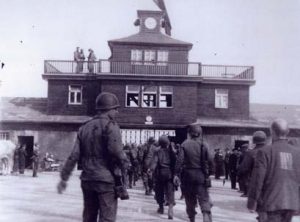 George S Patton, liberated the Buchenwald concentration camp. Just before the Americans arrived, the camp had already been taken over by the Communist prisoners who had killed some of the guards and forced the rest to flee into the nearby woods. They knew the end was near for them anyway, and there seemed no further reason to stand and fight. I suppose that the fact that the guards had deserted their posts, made it possible for just four soldiers to take over and liberate the camp. On the morning of April 12, 1945, soldiers of the 80th Infantry Division arrived in the nearby town of Weimar and found it deserted except for some of the liberated prisoners roaming around. The townspeople were cowering in fear inside their homes…bomb-damaged from the February 9, 1945 air raid that was to precede the liberation process. I would think that if any of them were a part of the concentration camp, there would be reason to fear the prisoners in town, because they had a reason to kill them, after all they had been through in German custody.
George S Patton, liberated the Buchenwald concentration camp. Just before the Americans arrived, the camp had already been taken over by the Communist prisoners who had killed some of the guards and forced the rest to flee into the nearby woods. They knew the end was near for them anyway, and there seemed no further reason to stand and fight. I suppose that the fact that the guards had deserted their posts, made it possible for just four soldiers to take over and liberate the camp. On the morning of April 12, 1945, soldiers of the 80th Infantry Division arrived in the nearby town of Weimar and found it deserted except for some of the liberated prisoners roaming around. The townspeople were cowering in fear inside their homes…bomb-damaged from the February 9, 1945 air raid that was to precede the liberation process. I would think that if any of them were a part of the concentration camp, there would be reason to fear the prisoners in town, because they had a reason to kill them, after all they had been through in German custody.
Recently, I found out that General George S Patton was my 8th cousin twice removed, on my grandmother, Hattie Pattan Byer’s side. I had always suspected a relationship there, with my grandmother’s maiden name being Pattan, but I didn’t expect it in the way it came about, since it is from my grandmother Elizabeth Shuck, who married my grandfather David Pattan, and not from the Pattan side outright. I have always liked General 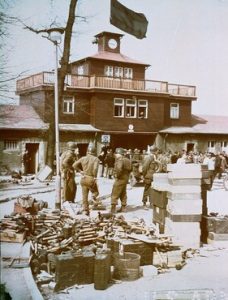 Patton, and I think it is really awesome that he is related to my family. In my opinion, he was an amazing general. He served as a commissioned officer in the United States Army for 36 years. He served in three major conflicts (Mexican Punitive Expedition, World War I and World War II) during his military career. He was awarded with the Distinguished Service Cross with one oak leaf cluster, the Army Distinguished Service Medal with two oak leaf clusters, the Navy Distinguished Service Medal, the Silver Star with one oak leaf cluster, the Legion of Merit, the Bronze Star Medal, the Purple Heart, the Silver Lifesaving Medal, the Mexican Border Service Medal, the World War I Victory Medal with four bronze campaign stars, the American Defense Service Medal, the European-African-Middle Eastern Campaign Medal with one silver and two bronze campaign star, the World War II Victory Medal, and posthumously…the Army of Occupation Medal with Germany clasp. That’s quite a war record. I’m sure the prisoners that he liberated felt that he very much earned them for his war skills.
Patton, and I think it is really awesome that he is related to my family. In my opinion, he was an amazing general. He served as a commissioned officer in the United States Army for 36 years. He served in three major conflicts (Mexican Punitive Expedition, World War I and World War II) during his military career. He was awarded with the Distinguished Service Cross with one oak leaf cluster, the Army Distinguished Service Medal with two oak leaf clusters, the Navy Distinguished Service Medal, the Silver Star with one oak leaf cluster, the Legion of Merit, the Bronze Star Medal, the Purple Heart, the Silver Lifesaving Medal, the Mexican Border Service Medal, the World War I Victory Medal with four bronze campaign stars, the American Defense Service Medal, the European-African-Middle Eastern Campaign Medal with one silver and two bronze campaign star, the World War II Victory Medal, and posthumously…the Army of Occupation Medal with Germany clasp. That’s quite a war record. I’m sure the prisoners that he liberated felt that he very much earned them for his war skills.
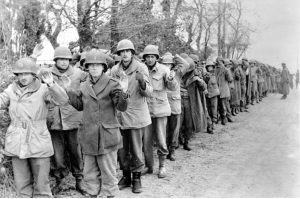 For as long as there have been wars, there have been prisoners of war. Obviously, part of the reason was to take those soldiers out of the fighting. If you are fighting against less enemy combatants, you have a better change of winning. It was a simply a part of war. Both sided took prisoners, and both sides knew that the other side was going to take prisoners. It was not the fact that prisoners were taken, but rather the way they were treated that made this part of war ugly sometimes.
For as long as there have been wars, there have been prisoners of war. Obviously, part of the reason was to take those soldiers out of the fighting. If you are fighting against less enemy combatants, you have a better change of winning. It was a simply a part of war. Both sided took prisoners, and both sides knew that the other side was going to take prisoners. It was not the fact that prisoners were taken, but rather the way they were treated that made this part of war ugly sometimes.
I’m sure that if there was work to do, it made sense to use the prisoners of war 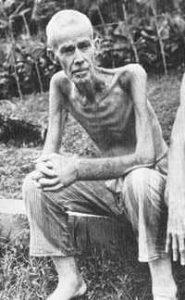 as, basically slave labor…make them earn their keep, so to speak, but often they were beaten, starved, overworked to the point of exhaustion, and basically treated like they were sub-human. Some nations were worse than others. And sometimes, the prisoners of war, weren’t even combatants, but civilians taken hostage for a variety of reasons…most of which had nothing to do with them being a danger in battle. Of course, from about the time of the Vietnam war, it became harder to tell if someone was a “combatant” or not. When children were sent out to interact with soldiers…bombs strapped to their chest…soldiers had to learn to be less than hospitable to the little ones too.
as, basically slave labor…make them earn their keep, so to speak, but often they were beaten, starved, overworked to the point of exhaustion, and basically treated like they were sub-human. Some nations were worse than others. And sometimes, the prisoners of war, weren’t even combatants, but civilians taken hostage for a variety of reasons…most of which had nothing to do with them being a danger in battle. Of course, from about the time of the Vietnam war, it became harder to tell if someone was a “combatant” or not. When children were sent out to interact with soldiers…bombs strapped to their chest…soldiers had to learn to be less than hospitable to the little ones too.
I understand the need for prisoners of war, when the war is still going on, but what is appalling is the treatment of the prisoners sometimes, and the refusal to give the prisoners back at the end of the conflict. Vietnam was also one of the times when prisoners were held long after the war. I know that sometimes the reasons for holding prisoners is that the opposing government refuses to abide by the conditions of the 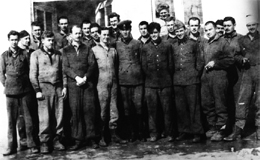 surrender of the losing side. Still, sometimes, the prisoners were held, for no legitimate reason, and for far longer than was reasonable. After World War II, the western Allies released their final prisoners in 1948, but many German POWs in the USSR were held for several more years. Most were used as slave labor in copper or coal mines, and anywhere between 400,000, and up to one million eventually died while in Russian custody. Some 20,000 former soldiers were still in Soviet hands at the time of Joseph Stalin’s death in 1953, and the last 10,000 didn’t get their freedom until 1955 and 1956 a full decade after the war had ended. That seems completely unconscionable to me, but then I’m not part of an evil nation.
surrender of the losing side. Still, sometimes, the prisoners were held, for no legitimate reason, and for far longer than was reasonable. After World War II, the western Allies released their final prisoners in 1948, but many German POWs in the USSR were held for several more years. Most were used as slave labor in copper or coal mines, and anywhere between 400,000, and up to one million eventually died while in Russian custody. Some 20,000 former soldiers were still in Soviet hands at the time of Joseph Stalin’s death in 1953, and the last 10,000 didn’t get their freedom until 1955 and 1956 a full decade after the war had ended. That seems completely unconscionable to me, but then I’m not part of an evil nation.
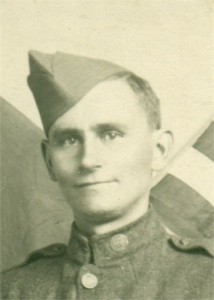 The United States is often called the Sleeping Giant. In the past, the United States has been known as the most powerful country in the world…back in the good old days, that is. Now China, Japan and Russia are also considered to be powerful countries where nuclear weaponry is concerned. The dollar was also the powerful currency, then and even now. The president of the United States was always considered the most powerful person, and I think still is today, or is moving back into that position. All these things considered, the United States was definitely a sleeping giant, because if it woke up it would do everything in its power to rectify things around the globe. As we saw on September 11, 2001, when terrorists attacked our country. Like Toby Keith sang in his song Courtesy Of The Red, White, And Blue (The Angry American), “Justice will be served, and the battle will rage. This big dog will fight when you rattle his cage. And you’ll be sorry that you messed with the U.S. of A” That is notoriously the way the United States has been when it comes to world conflict…slow to anger, but once we are in a war…we are in it to win it!
The United States is often called the Sleeping Giant. In the past, the United States has been known as the most powerful country in the world…back in the good old days, that is. Now China, Japan and Russia are also considered to be powerful countries where nuclear weaponry is concerned. The dollar was also the powerful currency, then and even now. The president of the United States was always considered the most powerful person, and I think still is today, or is moving back into that position. All these things considered, the United States was definitely a sleeping giant, because if it woke up it would do everything in its power to rectify things around the globe. As we saw on September 11, 2001, when terrorists attacked our country. Like Toby Keith sang in his song Courtesy Of The Red, White, And Blue (The Angry American), “Justice will be served, and the battle will rage. This big dog will fight when you rattle his cage. And you’ll be sorry that you messed with the U.S. of A” That is notoriously the way the United States has been when it comes to world conflict…slow to anger, but once we are in a war…we are in it to win it!
The same held true for the other wars we have been in. We might not jump in early, but when we do…look out. On this day, April 6, 1917, the United States Senate voted 82 to 6 to declare war against Germany, the United 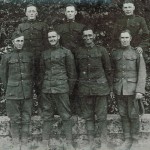 States House of Representatives endorses the declaration by a vote of 373 to 50, and America formally entered World War I. This action would be the one that would send my grandfather, George Byer to war. He was 24 years old. Grandpa didn’t talk much about his time in the war…at least not that I remember. I think that most of the men who came home after fighting in a war, are just happy to be home. They want to put it all behind them, and move forward with their lives, knowing that if it was ever necessary he would go back again. He was a patriot, and that was what patriots did. In fact, when the time came for the men to register for the “old man draft” of World War II…a time when men up to the age of 65 were required to register for the draft, Grandpa was honored to register, as were the other men between the ages of 45 and 65. These men felt like their time of usefulness was over, and when they were told that they were needed again, even if it was just for work on the home front, they all jumped at the chance to serve.
States House of Representatives endorses the declaration by a vote of 373 to 50, and America formally entered World War I. This action would be the one that would send my grandfather, George Byer to war. He was 24 years old. Grandpa didn’t talk much about his time in the war…at least not that I remember. I think that most of the men who came home after fighting in a war, are just happy to be home. They want to put it all behind them, and move forward with their lives, knowing that if it was ever necessary he would go back again. He was a patriot, and that was what patriots did. In fact, when the time came for the men to register for the “old man draft” of World War II…a time when men up to the age of 65 were required to register for the draft, Grandpa was honored to register, as were the other men between the ages of 45 and 65. These men felt like their time of usefulness was over, and when they were told that they were needed again, even if it was just for work on the home front, they all jumped at the chance to serve.
As for World War I, Grandpa would serve, and he would come home. Then, he would go on to live a long life…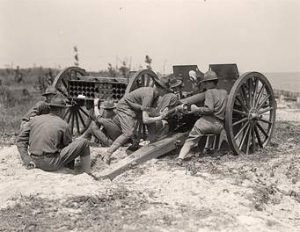 forever changed from the man he once was, because you see, war changes a man. They are changed by what they see, whether they were required to take a life or not. And if they were required to kill, then kill they would, because The Sleeping Giant had been awakened, and the Big Dog’s cage had been rattled. The United States would go to war, and they would win, along with their alleys, because losing was not an option…not if the world was to remain the kind of place we knew and loved. Germany was an evil empire, and that evil empire had to be stopped. I am very proud of my grandfather’s service, and I’m thankful that the Big Dog fought in this one and the other wars it has fought in. It was an important fight, and we needed to win it.
forever changed from the man he once was, because you see, war changes a man. They are changed by what they see, whether they were required to take a life or not. And if they were required to kill, then kill they would, because The Sleeping Giant had been awakened, and the Big Dog’s cage had been rattled. The United States would go to war, and they would win, along with their alleys, because losing was not an option…not if the world was to remain the kind of place we knew and loved. Germany was an evil empire, and that evil empire had to be stopped. I am very proud of my grandfather’s service, and I’m thankful that the Big Dog fought in this one and the other wars it has fought in. It was an important fight, and we needed to win it.
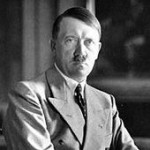
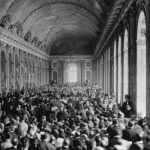 One would expect that after being defeated in a war, it would be understood that you don’t go up against the same adversary again, but apparently this concept was lost on Adolf Hitler. We all know who Hitler was, and that he was bent on taking over the world. There were things about him that had the people of Germany fooled into thinking that he was going to be a great leader, until his Nazi swastika became the symbol of hate and Anti-Semitism. In late June 1914, Archduke Franz Ferdinand of Austria was assassinated by a Serbian nationalist in Sarajevo, Bosnia. An escalation of threats and mobilization orders followed the incident, leading by mid-August to the outbreak of World War I, which pitted Germany, Austria-Hungary and the Ottoman Empire, called the Central Powers, against Great Britain, France, Russia, Italy and Japan, the Allied Powers. The Allies were joined after 1917 by the United States. The Great War, as it was then known, went on for four long years, and saw unprecedented levels of death and destruction, due mostly to grueling trench warfare and the introduction of modern weaponry such as machine guns, tanks and chemical weapons. By the time World War I ended in the defeat of the Central Powers in November 1918, more than 9 million soldiers had been killed and 21 million more were wounded. It makes me cringe to think of the good men lost because of hatred.
One would expect that after being defeated in a war, it would be understood that you don’t go up against the same adversary again, but apparently this concept was lost on Adolf Hitler. We all know who Hitler was, and that he was bent on taking over the world. There were things about him that had the people of Germany fooled into thinking that he was going to be a great leader, until his Nazi swastika became the symbol of hate and Anti-Semitism. In late June 1914, Archduke Franz Ferdinand of Austria was assassinated by a Serbian nationalist in Sarajevo, Bosnia. An escalation of threats and mobilization orders followed the incident, leading by mid-August to the outbreak of World War I, which pitted Germany, Austria-Hungary and the Ottoman Empire, called the Central Powers, against Great Britain, France, Russia, Italy and Japan, the Allied Powers. The Allies were joined after 1917 by the United States. The Great War, as it was then known, went on for four long years, and saw unprecedented levels of death and destruction, due mostly to grueling trench warfare and the introduction of modern weaponry such as machine guns, tanks and chemical weapons. By the time World War I ended in the defeat of the Central Powers in November 1918, more than 9 million soldiers had been killed and 21 million more were wounded. It makes me cringe to think of the good men lost because of hatred.
In July 1919, just eight months after the end of World War I, the Treaty of Versailles was signed, calling for stiff war reparation payments and other punishing peace terms for a defeated Germany. Having been forced to sign the treaty, the German delegation to the peace conference indicated its attitude by breaking the ceremonial pen. In my mind, that was indicative of what was to come. They felt like they shouldn’t have had to surrender or sign such an agreement, and they were telling the world that at some point they would break that treaty. As dictated by the Treaty of Versailles, Germany’s military forces were reduced to insignificance and the Rhineland, along the western border of Germany, was to be demilitarized. Nazi leader Adolf Hitler, well known for his hatred of authority, and for his lack of good sense as it turns out, would violate the Treaty of Versailles and the Locarno Pact by sending German military forces into the Rhineland just four years later.
By 1923, Adolf Hitler and the Nazi Party had seized full power in Germany, removing the rights of the people to have any say in their lives or in government. Hitler promised vengeance against the Allied nations that had 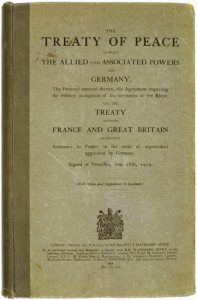
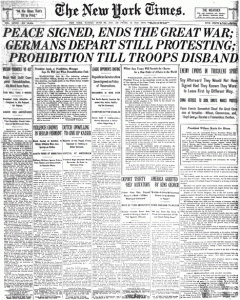 forced the Treaty of Versailles on the German people. In my opinion, the German people had nothing to do with it. The problem with the Treaty of Versailles and the Locarno Pact was Hitler’s on dislike of authority. In 1935, Hitler unilaterally canceled the military clauses of the treaty and in March 1936 denounced the Locarno Pact and began the remilitarizing of the Rhineland. Two years later, Nazi Germany burst out of its territories, absorbing Austria and portions of Czechoslovakia. In 1939, Hitler invaded Poland, leading to the outbreak of World War II in Europe. Hitler would be defeated in World War II, just as he was in World War I, and his suicide and complete show of cowardice would prove that he was not only hateful, but incredibly stupid as well.
forced the Treaty of Versailles on the German people. In my opinion, the German people had nothing to do with it. The problem with the Treaty of Versailles and the Locarno Pact was Hitler’s on dislike of authority. In 1935, Hitler unilaterally canceled the military clauses of the treaty and in March 1936 denounced the Locarno Pact and began the remilitarizing of the Rhineland. Two years later, Nazi Germany burst out of its territories, absorbing Austria and portions of Czechoslovakia. In 1939, Hitler invaded Poland, leading to the outbreak of World War II in Europe. Hitler would be defeated in World War II, just as he was in World War I, and his suicide and complete show of cowardice would prove that he was not only hateful, but incredibly stupid as well.

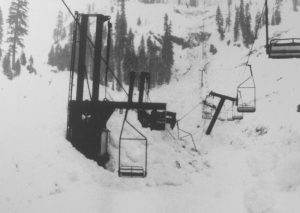 When we think of a series of disasters, it is usually tornadoes, earthquakes, or floods that come to mind. On February 11, 1952, none of the usual suspects were at fault in the series of disasters that began across central Europe. Snow storms don’t normally fall into the category of a series of disasters, but when a storm stalled over middle Europe during the first week of February of 1952, it dumped two feet of snow in parts of France, Austria, Switzerland, and Germany. In the vast area of middle Europe, life quickly ground to a standstill. Everything was closed, and travel was impossible. Germany recruited thousands of people and their shovels in an attempt to make the streets passable. In France several people died when their roofs collapsed under the weight of the heavy snow accumulation.
When we think of a series of disasters, it is usually tornadoes, earthquakes, or floods that come to mind. On February 11, 1952, none of the usual suspects were at fault in the series of disasters that began across central Europe. Snow storms don’t normally fall into the category of a series of disasters, but when a storm stalled over middle Europe during the first week of February of 1952, it dumped two feet of snow in parts of France, Austria, Switzerland, and Germany. In the vast area of middle Europe, life quickly ground to a standstill. Everything was closed, and travel was impossible. Germany recruited thousands of people and their shovels in an attempt to make the streets passable. In France several people died when their roofs collapsed under the weight of the heavy snow accumulation.
The worst of the storm, however, was felt in Austria, when a series od deadly avalanches took a heavy death toll. It was during the early hours of February 11, 1952, at a ski resort in Melkoede, when a huge mass of the newly fallen snow suddenly crashed down the mountain from above. There was no time to react, and no time to get away. They were trapped. Fifty people were sleeping at the resort. Twenty of them, mostly German tourists were killed, and another ten were seriously injured. In Switzerland and Austria, authorities issued urgent warnings about potential avalanches and some villages were actually evacuated. Nevertheless, all that was not enough. The next day there were more damaging avalanches. In Isenthal, Switzerland, hundreds of cattle and several barns were buried by an avalanche. In Leutasche, Austria, a twelve year old child was saved by people who risked their own lives in the face of a second avalanche that was poised to fall. Seven members of the child’s family were killed by the avalanche.
Avalanches kill more than 150 people worldwide each year. Most are snowmobilers, skiers, and snowboarders, and most deadly avalanches are triggered by the victim or someone in their party. Given that count, I suppose that the 78 people who perished in the February avalanches in middle Europe in 1952, might seem like a small number, but when you consider that these deaths occurred over a period of a few days, and the rest of the deaths by avalanches from that year were not included in that number, the death toll is staggering. This was not the worst avalanche death toll, however. That record, if it is right to call it such, goes to the Huascarán avalanche that was triggered by the 1970 Ancash earthquake in Peru. On 31 May 1970, the Ancash earthquake caused a substantial part of the north side of the mountain to collapse. The avalanche mass, an 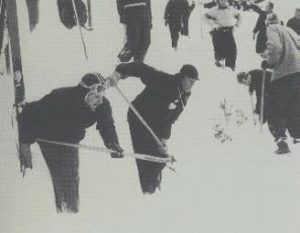
 estimated 80 million cubic feet of ice, mud and rock, was about half a mile wide and a mile long. It advanced about 11 miles at an average speed of 175 to 200 miles per hour, burying the towns of Yungay and Ranrahirca under ice and rock, killing more than 20,000 people. This avalanche, in my estimation, might have been more of a landslide than an avalanche, and so it’s very possible that all of these people would have died had there been snow or not.
estimated 80 million cubic feet of ice, mud and rock, was about half a mile wide and a mile long. It advanced about 11 miles at an average speed of 175 to 200 miles per hour, burying the towns of Yungay and Ranrahirca under ice and rock, killing more than 20,000 people. This avalanche, in my estimation, might have been more of a landslide than an avalanche, and so it’s very possible that all of these people would have died had there been snow or not.
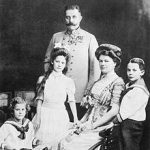
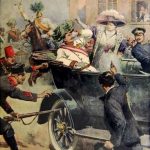 It’s amazing to me that one act of hate can bring so many people to war, but that was what happened with World War I. On June 28, 1914, Archduke Franz Ferdinand of Austria, and his wife, Sophie, Duchess of Hohenberg, were assassinated by a Serbian nationalist in Sarajevo, Bosnia. The assassin, Gavrilo Princip was an ethnic Serb and Yugoslav nationalist from the group Young Bosnia, which was supported by the Black Hand, a nationalist organization in Serbia. The outraged Austrian people and its government threatened mobilization of troops to seek vengeance for their beloved leader and his family.
It’s amazing to me that one act of hate can bring so many people to war, but that was what happened with World War I. On June 28, 1914, Archduke Franz Ferdinand of Austria, and his wife, Sophie, Duchess of Hohenberg, were assassinated by a Serbian nationalist in Sarajevo, Bosnia. The assassin, Gavrilo Princip was an ethnic Serb and Yugoslav nationalist from the group Young Bosnia, which was supported by the Black Hand, a nationalist organization in Serbia. The outraged Austrian people and its government threatened mobilization of troops to seek vengeance for their beloved leader and his family.
The crisis escalated as the conflict between Austria-Hungary and Serbia came to involve Russia, Germany, France, and ultimately Belgium and Great Britain. By mid-August of 1914, the crisis had become a full blown war, with Germany, Austria Hungary and the Ottoman Empire, known as the Central Powers, against Great Britain, France, Russia, Italy and Japan, the Allied Powers. The United States would also enter the war as a part of the Allied Powers in 1917. Other factors came into play during the diplomatic crisis that preceded the war, such as misperceptions of intent in that Germany believed that Britain would remain neutral, the belief that war was inevitable, and the speed of the crisis, which was exacerbated by delays and misunderstandings in diplomatic communications. The four years of the Great War…as it was dubbed…saw unprecedented levels of carnage and destruction, thanks to grueling trench warfare and the introduction of modern weaponry such as machine guns, tanks and chemical weapons. By the time World War I ended in the defeat of the Central Powers in November 1918, more than 9 million soldiers had been killed and 21 million more wounded.
Evil exists in this world, and it gets worse every day, and assassinations are not new. Chanakya, 350–283 BC, an Indian teacher, philosopher and royal advisor, wrote about assassinations in detail in his political treatise Arthashastra. Later, his student Chandragupta Maurya, the founder of the Maurya Empire of India, made use of assassinations against some of his enemies, including two of Alexander’s generals Nicanor and Philip. I suppose it should not be a surprise, yet every assassination brings with it shock, fear, and rage. 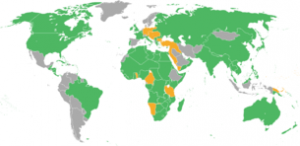
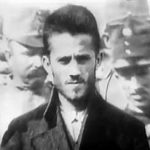 Countless wars have been fought over one nation’s ruler being killed by someone from another nation. War will be a part of our world until the end of time, but that in no way lessens the worry, fear, and sadness that war always brings. Still, like the Allies of World War I, we cannot let one group or nation hold power over another group or nation…which also explains the need to destroy ISIS.
Countless wars have been fought over one nation’s ruler being killed by someone from another nation. War will be a part of our world until the end of time, but that in no way lessens the worry, fear, and sadness that war always brings. Still, like the Allies of World War I, we cannot let one group or nation hold power over another group or nation…which also explains the need to destroy ISIS.

